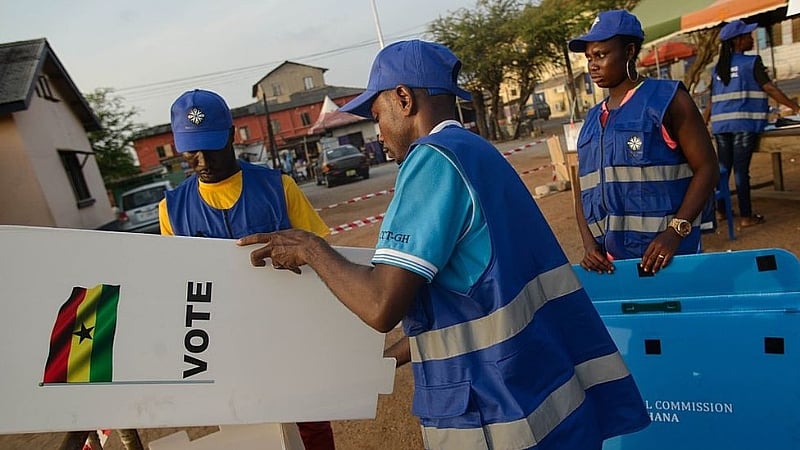The Ablekuma North Rerun: A Decisive Vote for Ghana’s Parliamentary Balance
The Electoral Commission of Ghana (EC) has scheduled a critical parliamentary rerun in the Ablekuma North Constituency for Friday, July 11, 2025. This rerun aims to resolve the lingering uncertainty surrounding the 2024 parliamentary election results in the constituency and finalize the balance of power between the New Patriotic Party (NPP) and the National Democratic Congress (NDC) in Parliament. The delay in finalizing the results stems from procedural irregularities involving pink sheets, the official documents used to record vote tallies at each polling station. These irregularities, where pink sheets were endorsed by party agents but not verified by presiding officers, contravened established EC protocols, necessitating the rerun.
The rerun will take place across 19 designated polling stations within the Ablekuma North Constituency. These stations, distributed across various localities including Darkuman, Kwashieman, Awoshie, Kwashie Bu, Odorkor, Tsuimami, Otaten, Akwei Bu, and Sakaman, represent a microcosm of the constituency’s diverse electorate. Their locations, ranging from schools and churches to a DVLA office and a police station, highlight the EC’s efforts to ensure accessibility for all registered voters. The specific locations include: God First International School, Pentecost Church Mount Zion Assembly, DVLA Office, Asiedu Gyeudu Memorial School, Living Spring Day Nursery, The Lords Pentecostal Church, Presby Church (Odorkor 4), Church of Pentecost (North Odorkor 2 & 4), Methodist Church, St. John the Baptist Catholic Church, Radiantway Preparatory School, Ateco School Complex, South Odorkor 4&5 School, Pentecost Church (Tweneboa 2), Light of Gospel Miracle Chapel, MTTD Odorkor Divisional Station, Roman Catholic Church (Busia Junction), and Bethel Baptist Church.
The stakes of this rerun are high, extending beyond the constituency level to impact the overall composition of Ghana’s Parliament. The outcome will determine which party secures the final outstanding seat, solidifying the parliamentary majority and influencing the legislative agenda for the coming term. The close nature of the initial election results accentuates the significance of every vote in this rerun, placing immense pressure on both the NPP and the NDC to mobilize their supporters and ensure a strong turnout. The final count will not only decide the constituency’s representation but also shape the dynamics of power and policy-making within the national legislature.
The EC has emphasized its commitment to conducting the rerun with utmost transparency and security. This commitment reflects the lessons learned from the initial election and aims to prevent any recurrence of the procedural irregularities that necessitated the rerun. Enhanced security measures will be in place to maintain order and prevent any disruptions to the voting process. The EC has also emphasized the importance of voter participation, urging all registered voters in the affected polling stations to exercise their civic duty and contribute to a peaceful and credible electoral process. This call underscores the significance of each individual’s participation in shaping the democratic future of the constituency and the nation as a whole.
The rerun represents an opportunity for the EC to reinforce public trust in Ghana’s electoral system. By demonstrating a commitment to transparency, security, and adherence to proper procedures, the EC can address concerns raised by the initial election and build confidence in the integrity of the rerun process. The successful execution of this rerun will serve as a testament to the resilience of Ghana’s democratic institutions and its commitment to free and fair elections. The eyes of the nation will be on Ablekuma North as the constituency plays a pivotal role in shaping the future political landscape.
Beyond the immediate outcome, the Ablekuma North rerun carries broader implications for Ghana’s democratic journey. It underscores the importance of continuous improvement in electoral processes, highlighting the need for robust safeguards against irregularities and the crucial role of electoral institutions in upholding the principles of democracy. This rerun serves as a reminder of the collective responsibility to ensure the integrity of elections and strengthen the foundations of democratic governance in Ghana. The lessons learned from this experience will undoubtedly inform future electoral reforms and contribute to a more robust and transparent electoral system.


